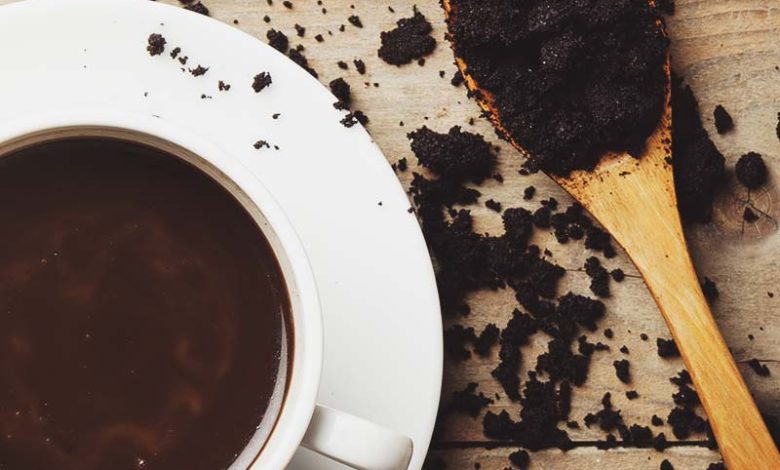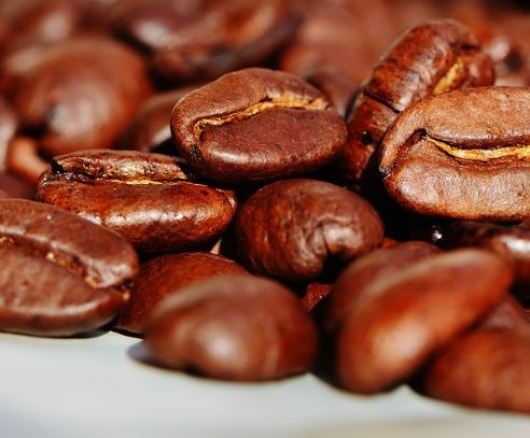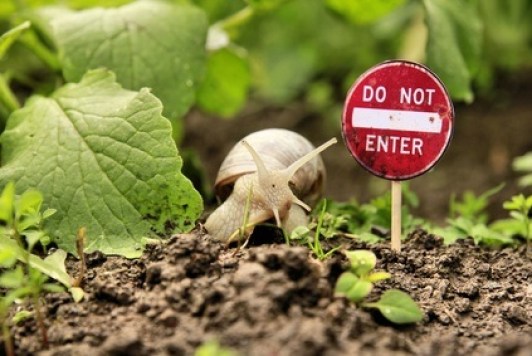7 Tricks to Reuse Coffee: Benefits of coffee in the garden

Hi Farmers! Today we will talk about how to reuse coffee. Have you ever stopped to think about the benefits of the coffee you drink daily? Surely yes! But apart from the benefits it can bring to our body… Did you know that you can also use it in your garden? It is very curious. So here are 7 tips to reuse coffee, which are very simple, ecological and cheap.

1. Coffee as fertilizer for the garden
They can be made of several types:
1.1. liquid fertilizer
You just need the coffee grounds and a glass of water, mix it and let it rest overnight or 24 hours and you can filter it or leave it as it is (in case it doesn’t filter, you should make a mixture as soon as possible). watery as possible, to avoid it being like a paste). This mixture can be used in two ways: if it has leaked, the ideal is to apply it with a spray on the leaf surface (which also has added advantages that we will see later. And whether it has leaked or not; it is spread over the surface off the ground and done.
1.2. semi-solid fertilizer
You need the coffee grounds and a little water, stir until a semi-solid mixture remains and then add to the substrate. It is advisable to mix it with the substrate before transplanting the plant. The amount to be mixed should not be very large.
Depending on the crop, it is recommended to pay once or twice every two weeks. One of the benefits it has is that it is rich in Nitrogen, which helps the growth and flowering of the plant. In addition, the pH varies between 6-7, so it will not over-acidify the soil.
2. Coffee grounds for the garden: Vermiculture
Coffee grounds are a very succulent food for worms since, as I mentioned before, they have a high Nitrogen content among other elements, so you can also add grounds or ground coffee, it is best to do it in small quantities weekly. This will greatly improve the humus.
In this link you can see how to make vermicompost.
3. Add coffee to compost
Both the coffee beans and the grounds, and even if it is wet, can be added to the homemade organic compost, along with the other organic remains. It will also give it a better smell or at least keep it a little more pleasant and controlled.
4. Coffee with a fungicidal effect
This requires the grounds or ground coffee or beans; let it dry very well in the sun for 2 days; then spread around the plant, it is recommended not to be in contact with it. Coffee is a great absorber of moisture, so it is a good fungicide against the most common fungal pests.
5. Fight pests with coffee
Among them ants, snails, slugs… (mainly those that move along the ground) the ideal for this is to spread the ground dry coffee around the plant and even at the foot of the pot, without putting it in contact with it, this It will prevent many pests from colonizing the plant. This is due, firstly, to the smell of coffee and secondly, because it acts as a physical barrier against these small visitors.

6. Keep cats away from the garden with coffee
Cats, which are very curious animals, sometimes end up spoiling the plants in our flowerpot; so one way to keep them from getting close to them is to spread coffee beans on the ground around the pot.
Another remedy is to use the coffee infusion together with orange peel infusion and distribute it with a sprayer over the body of the pots, the soil near them and even if necessary, apply to the leaves but without insisting too much.
7. Quilted with coffee
For this, the grounds are needed, either dry or ground coffee, mixed with wood chips, and distributed over the surface of the pot, in this way the roots are prevented from freezing to death in winter. It is advisable to place it on a small plastic mesh in case you want to remove it after this season.
References
- Brito, R., Pereyra, E., Sarica, C. (2018).Well trajectory effect on slug flow development. Journal of Petroleum Science and Engineering. 167, 366-374.
- Clarke, RJ. (2003). COFFEE | Instant Editor(s): Benjamin Caballero, Encyclopedia of Food Sciences and Nutrition (Second Edition), Academic Press,1493-1498.
- Komes, D., Belš?ak-Cvitanovi?, A. (2014). Chapter 10 – Effects of Preparation Techniques on the Antioxidant Capacity of Coffee Brews, Editor(s): Victor Preedy. Processing and Impact on Antioxidants in Beverages, Academic Press, 87-97.
All these tips are used mostly in the flowerpot, although if they are used in larger quantities they are also valid for the outdoor garden. So the next time you buy or drink coffee, remember that it can also help your orchard or garden.

![Photo of Brown Spots on Leaves: [Detection, Causes and Treatment]](https://www.complete-gardening.com/wp-content/uploads/2022/08/brown-spots-on-leaves-detection-causes-and-treatment-390x220.jpg)
![Photo of Celery: [Cultivation, Irrigation, Care, Pests and Diseases]](https://www.complete-gardening.com/wp-content/uploads/2022/08/celery-cultivation-irrigation-care-pests-and-diseases-390x220.jpg)
![Photo of What Diseases and Pests Attack the Olive Tree? [Treatments]](https://www.complete-gardening.com/wp-content/uploads/2022/08/what-diseases-and-pests-attack-the-olive-tree-treatments-390x210.jpg)
![Photo of Lavender Pests and Diseases: [Detection, Causes and Solutions]](https://www.complete-gardening.com/wp-content/uploads/2021/06/lavanda_1603497780-390x220.jpg)